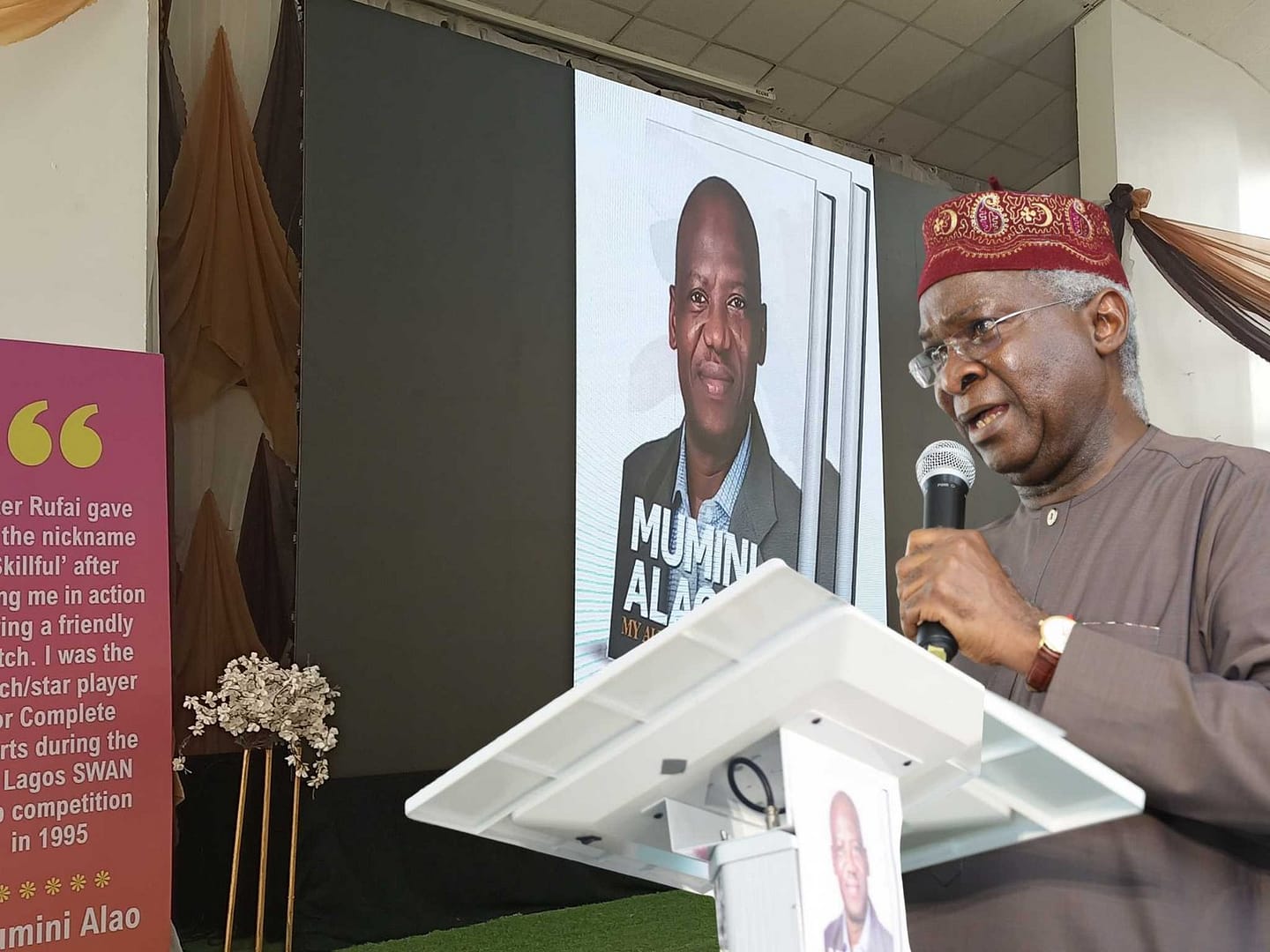Ex-Lagos governor advocates community ownership, branding, and corporate governance in Nigerian football. Former Governor of Lagos State and Nigeria’s Minister of Works and Housing, H.E. Babatunde Raji Fashola (SAN), has called for state governments to divest ownership of football clubs to private investors and supporters, arguing that sustainability depends on proper corporate governance and brand identity, Completesports.com reports.. Table of Contents. Toggle. Speaking at the launch of Dr. Mumini Alao’s autobiography at Tayo Aderinokun Lecture Theatre, University of Lagos on Sunday, 10 August 2025, on keynote special address titled “Re-Thinking The Current Football Business Model In Nigeria As A Catalyst For Sports Development”, Fashola seriously advocated for modern football that thrives on community ownership, strategic branding, and financial discipline.. Fashola’s remarks carried a clear and compelling message to Nigerian state governments, who own the majority of Nigeria Premier Football League (NPFL) clubs, that the entrenched culture of political appointments and unprofessional management in these teams is unsustainable.. Also Read: ‘Safe, Modern Sports Arenas Will Revive Nigeria’s Sporting Culture’ – Fashola. He emphasised that true progress in Nigerian football requires state authorities to relinquish control, embrace corporate governance, and allow competent, business-minded stakeholders to drive club administration for long-term success.. “Now that we have seen all of what has been done, what can be done, and still needs to be done, how do these general recommendations respond to Mumini Alao’s concerns about the ownership of football clubs by states and their sustainability, and how to get Nigerian spectatorship back into the stadia?,” Fashola asked introspectively.. The former Governor then made very insightful observations and strong recommendations.. Modern stadium experience is a magnet for fans – Fashola. “The first thing to say is that modern arenas – with multi-purpose functions, will attract people, increased media coverage, safe parking, reliable transport services into and out of the venue, and the safety of the patrons and their families – will assure them,” he noted.. Dr. Alao and guests at his autobiography launch savour Fashola’s special keynote speech.. “Simple raffle draws at half-time, using the ticket numbers to give token prizes like jerseys, useful devices like smartphones and souvenirs, but certainly no cash are options that can be considered as creative incentives.. “Governance, regulation, planning and calendarization are investment assurances and incentives for sponsorships.. “Most clubs around the world have supporters within the local communities and outside who own part of the clubs.. Divest state-owned clubs to the public – Fashola Advises. “The time has come for those state-government-owned clubs to divest themselves of most or all of their shares and sell them to public under advice from those who have expertise in privatisation not for self-serving purposes but to real business and sports minded concerns and supporters who will have a corporate governance and be subject to audits and company laws.. Also Read: Fashola: Sports Development Key to Solving Nigeria’s Youth Unemployment Crisis. “In the effort to build ownership and by extension followership, support and ultimately brand identity, existing state-owned clubs must project a brand that people want to identify with and this varies across board from state to state.”. “The time has come for state-owned clubs to sell most or all of their shares to the public under expert advice. Ownership builds followership, support, and brand identity.”. Fashola Recommends Branding rooted in community culture and identity. Fashola stressed that branding must be based on scientific surveys, reflecting local culture, occupations, and preferences—without ethnic or religious bias. He drew the audience’s attention to English club Luton Town, nicknamed The Hatters, which reflects the club’s identity with its host community, famous for the hat-making trade.. He explained: “This identity will be discernible not from any superficial reasoning but from scientific investigation, both as poll/survey of what the people want or identify with.. “This will include—but will not be limited to—the name, colours, prevalent occupation in the area, that excludes ethnicity and religion. Township identities, occupational dominance and cultural practices are good branding considerations as the states seek to divest or new proprietors seek to inaugurate.”. Fashola Advocates Financial discipline and legal safeguards for club operations. To ensure financial stability, Fashola proposed that clubs secure bank guarantees or insurance policies for players’ salaries before each season.. Fashola joins other dignitaries on the podium to unveil Dr. Mumini Alao’s autobiography. “Financial instruments such as insurance policies and bonds, and bank guarantees must be used to ensure that players’ and staff salaries are guaranteed before each season starts, and they can be enforceable in the event of default. This will require the Central Bank and other financial institutions to put on their thinking caps,” he stated.. Also Read: Gusau Hails Alao On Autobiography Launch. “Bankruptcy and liquidation proceedings already in our laws must be firmly applied to remove the cancer of failing clubs before they spread and contaminate others.”. Raising professional standards and private sector participation. The former governor also recommended introducing minimum wages for footballers, enforcing professional standards, and creating incentives for small and medium enterprises to invest in sports.. Recalling the historic Club 400 model, which pooled private funds for sports development, Fashola said: “If there is a good plan, funding will follow. We must stop agonising about money before having a strategy.”. Strategic planning before seeking funding. Fashola stressed: “I hear the unspoken question about where will the money come from.. “My answer is that we must develop a plan and programme that is capable of being funded before we start losing sleep about funds.. “Almost too often we agonize about funding without developing a workable plan.”. By Nnamdi Ezekute

